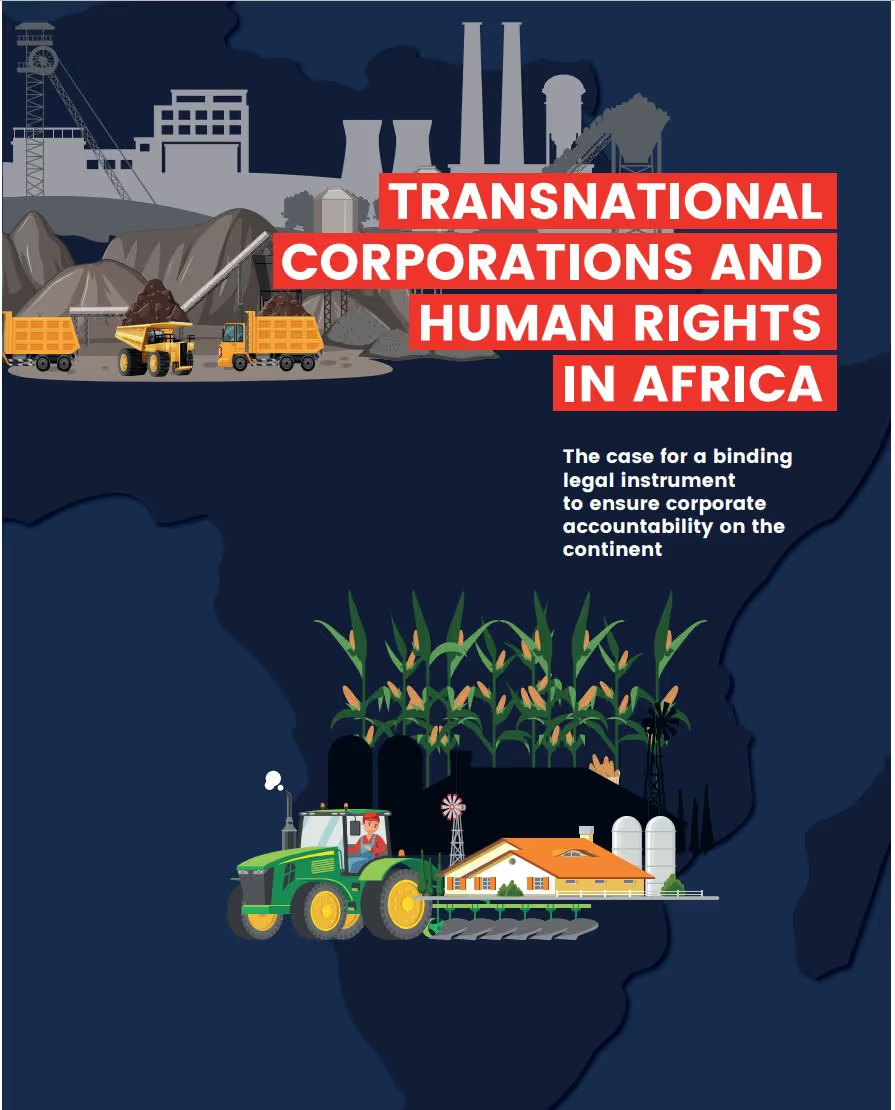Corporations have a long history of profiting from the exploitation of Africa’s resources and people. Beginning in the 1500s, companies arrived on the continent with special charters issued under the authority of their own European states. These charters allowed them to trade goods within specific regions. They also gave companies the power to use whatever means necessary – including violence – to access, advance, and sustain trade in these areas. In fact, corporations like the Imperial British East Africa Company or the Dutch East India Company and many others played an integral role in colonisation over the centuries to come. Today, in many ways, that same motive to grow profits above all else continues to drive many business activities on the African continent. Often, corporations are now both larger and more powerful than the countries where they operate. In a recent survey of the 100 richest entities by revenue, a full 69 are not actually countries, but companies.
As Global Justice Now has observed, large corporations like Walmart, Shell or Apple are even richer than relatively wealthy countries like Russia, Belgium and Sweden – let alone smaller states in the Global South. Apple on its own has a market value that surpassed $1 trillion, which is roughly equal to the combined GDPs of Africa’s five largest economies – or its forty-nine smallest economies. This difference in scale creates an obvious imbalance of power and corporations can easily take advantage of countries with a dependence on foreign investment for cheap labour and natural resources. Corporations – including mining companies, textile manufacturers and even popular electronics brands – are in a situation where they are still responsible for major human rights abuses and violations on the continent, from environmental damage to harmful child labour practices. In 2016, for example, Amnesty International released a report tracing the cobalt mined by child labourers in the DRC. Their findings showed that cobalt extracted in appalling conditions by children as young as seven ended up in smartphone batteries sold by several major tech companies, including Apple. Apple’s net profit for the year ending September 2016 was its highest ever recorded: well over $50 billion.
Despite this, the company had not done basic checks to ensure the raw materials used in its products were not mined by children labouring twelve hours a day with no protective equipment to earn one or two dollars for their work. Though companies continue to profit from human rights abuses and violations around the world, it remains difficult to hold them accountable. As in the above examples, companies may target countries in Africa and the rest of the developing world, where domestic laws are relatively weak in design and/or enforcement. International law does not generally apply to corporations, but only applies to states.
There are several frameworks aiming to address this, such as the UN Guiding Principles on Business and Human Rights (UNGPs) and the Organisation for Economic Development and Co-operation (OECD) Guidelines for Multinational Enterprises. They are, however, as the names suggest ‘guidelines’ and ‘principles’ and thus voluntary and not binding. Yet it is evident that, in the face of increasing community displacements, systematic human rights violations, and widespread environmental degradation among other abuses, it is not enough to give businesses a choice on whether to respect human rights. Transnational corporations also operate through subsidiaries, contractors, and other entities who are part of their global value chains, and often use their complex structure to avoid accountability in national jurisdictions. What is needed instead is a legally binding, international mechanism for holding corporations accountable for human rights abuses and violations.




.png)

